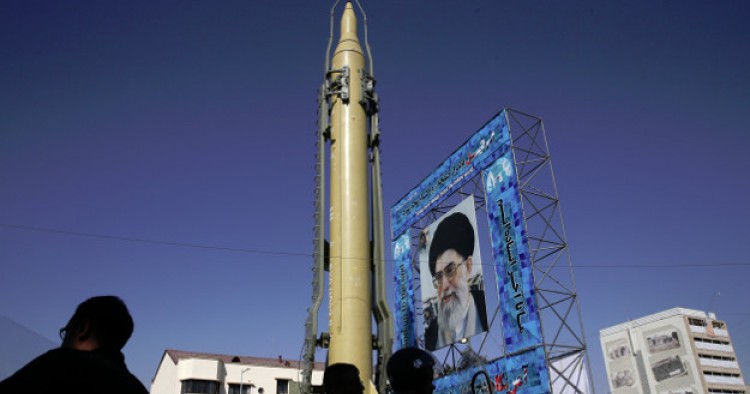Iran’s Foreign Ministry said new U.S. sanctions would not force Tehran to halt its missile program. The ministry’s spokesman argued that Iran’s missile program does not violate the 2015 nuclear deal or the U.N. resolution that endorsed the agreement. “Iran's missile programs are fully legitimate and they do not even contradict the UNSC's Resolution 2231 and nothing will be able to deprive Iran from its legitimate defense right," Bahram Ghassemi said on Friday. Resolution 2231, which endorsed the 2015 Iran nuclear agreement, calls upon Iran "not to undertake any activity related to ballistic missiles designed to be capable of delivering nuclear weapons.” The Iranian foreign ministry’s reaction came a day after the U.S. Senate overwhelmingly passed a legislation that would impose new sanctions against Iranian entities associated with the ballistic missile program, support for terrorism and human rights abuses.
Comment: Iran’s missile activity has been a constant source of tension between Washington and Tehran in recent years. Although the Trump administration has warned Iran to halt its missile program and has imposed new sanctions on the country’s entities associated with the program, Tehran has only accelerated its drive to upgrade its missile capabilities.
Last month, the Iranian defense minister claimed that the country has achieved self-sufficiency in the field of producing military hardware, particularly ballistic missiles. “Today, we have reached a point that we can design and produce all of our needs in the area of ballistic and cruise missiles,” Brigadier General Hossein Dehghan said at a gathering in Tehran. “We have cruise missiles with a range of 300 km,” he added.
His remarks came a day after another senior Iranian military official announced that the country had recently built a third underground ballistic missile production factory. “We will increase our missile power. Our enemies, the United States and the Zionist regime (Israel) are naturally upset and get angry at our missile production, tests and underground missile facilities because they want Iran to be in a weak position," Brigadier General Amir Ali Hajizadeh told a public gathering in the southwestern Iran.
There is a consensus among political and military leaders in Tehran to continue and further advance Iran’s missile technology at any cost. At the first press conference since winning reelection, President Hassan Rouhani said last month that the Islamic Republic would continue its ballistic missile program despite Washington’s concerns. “American authorities should know that whenever we need to test a missile for technical reasons, we will carry it out. And we will not wait for them or their permission,” he said defiantly after U.S. and Saudi leaders criticized Tehran’s regional policies at the Riyadh summit. Iran’s Supreme Leader Ali Khamenei also stressed that his country would further enhance its missile power “We have missiles and they are very precise. They can hit targets with precision from thousands of kilometers away. We will forcefully preserve and enhance this capability.”
While the nuclear agreement does not address Iran’s missile program, the subsequent U.N. Security Council Resolution 2231 “calls upon Iran not to undertake any activity related to ballistic missiles designed to be capable of delivering nuclear weapons, including launches using such ballistic missile technology.” Iranian leaders argue that the country’s missiles are not designed to carry nuclear warheads, but U.S. officials say some of the missiles Iran has tested after the 2015 nuclear deal have been "inherently capable of delivering nuclear weapons" and are "in defiance of" the U.N. resolution.
The Middle East Institute (MEI) is an independent, non-partisan, non-for-profit, educational organization. It does not engage in advocacy and its scholars’ opinions are their own. MEI welcomes financial donations, but retains sole editorial control over its work and its publications reflect only the authors’ views. For a listing of MEI donors, please click here.













